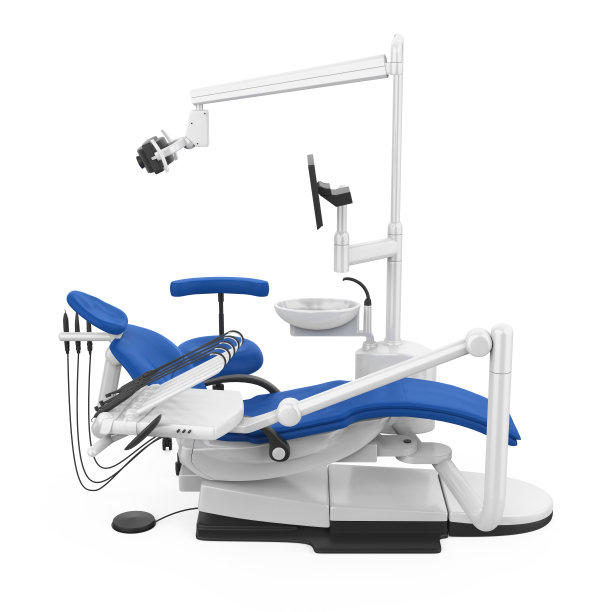Summary: Dental filling procedures are common treatments aimed at restoring teeth affected by decay or damage. However, ensuring optimal results requires careful consideration of various factors. This article outlines essential tips and precautions to help patients prepare effectively for their dental filling appointments. By understanding the procedure, discussing options with your dentist, considering your overall health, and preparing adequately for recovery, you can significantly enhance the outcome of the filling. Following these guidelines will not only assist in achieving favorable results but also ensure a smoother and more comfortable dental experience.
1. Understanding the Dental Filling Procedure

Before undergoing a dental filling, it is crucial to understand the procedure. A dental filling is designed to restore the function and integrity of a tooth that has been compromised by decay or damage. The process generally involves cleaning out the affected area, applying the filling material, and shaping it to match the tooths surface.
Patients may choose from various filling materials, including amalgam, composite resin, gold, and porcelain. Each option has its own benefits and considerations in terms of durability, cost, and aesthetics. Discussing these choices with your dentist can help you select the most suitable material for your specific needs.
Moreover, familiarize yourself with what to expect during and after the procedure. Recognizing the steps involved can lessen anxiety and lead to a more positive experience. Knowledge empowers patients to engage actively in their dental health decisions, contributing to improved outcomes.
2. Communicating With Your Dentist
Effective communication with your dentist is vital before any dental procedure, including fillings. Be open about any concerns or fears you may have regarding the treatment. This dialogue gives your dentist the opportunity to provide reassurance and address any uncertainties.
Discuss your dental history, including any previous dental work or health issues that may affect the procedure. This information allows your dentist to tailor the treatment plan to better suit your individual circumstances. Dont hesitate to ask questions about the filling material, the duration of the procedure, and what post-treatment care to expect.
Your dentist can also offer insight into potential complications and how to mitigate them. Inquire about necessary anesthetics and pain management options, particularly if you have anxiety about the dental chair. Clear communication fosters a partnership between you and your dentist, ensuring a comprehensive understanding of what lies ahead.
3. Considering Your Overall Health
Your overall health can significantly impact the dental filling procedure and recovery. Certain medical conditions, such as diabetes or bleeding disorders, may influence healing and affect the procedure duration. Therefore, its essential to provide your dentist with a complete medical history.
If you are currently taking medication, especially anticoagulants or antibiotics, inform your dentist. These factors could necessitate pre-treatment adjustments to ensure a safe and effective dental filling. In some cases, your dentist may recommend consulting your physician before proceeding.
Additionally, consider any allergic reactions you may have to dental materials or anesthetics. Communicating these allergies to your dentist will help avoid complications during the procedure. Be proactive about your health by ensuring your dentist has all the pertinent information for a safe and successful dental filling experience.
4. Preparing for Recovery After the Procedure
Preparation for recovery is just as vital as the planning stages before your dental filling. Understanding post-treatment instructions can aid in minimizing discomfort and ensuring a smooth healing process. Your dentist will provide guidelines on what to do and what to avoid after the procedure.
Avoid consuming hot or hard foods immediately after the filling to prevent unnecessary stress on the treated tooth. Soft foods and liquids are recommended during the first few days. Following any prescribed pain management plan, such as taking over-the-counter analgesics, can also ease discomfort during recovery.
Finally, scheduling a follow-up appointment will allow your dentist to assess the filling and overall healing. It also provides an opportunity to address any concerns, ensuring that your dental health remains a priority. Proper post-care can greatly contribute to the longevity of your dental filling.
Summary: Preparing for a dental filling requires understanding the procedure, maintaining communication with your dentist, considering your overall health, and being ready for recovery. Each aspect plays a critical role in achieving an effective treatment outcome. By following these tips, patients can feel more confident and empowered throughout their dental care journey.
This article is compiled by Vickong Dental and the content is for reference only
Vickong Dental
Vickong Dental is a large medical group established in Hong Kong in 2008 by professors from well-known medical universities in Guangdong and Hong Kong, as well as medical doctors from key national '985' universities (including Master's supervisors and senior professors). The chain of branches brings together expert dentists with PhDs and Master's degrees from Hong Kong and Mainland China, committed to providing high-quality dental treatment.
"Vickong Dental Practices the University Motto of 'Healing and Serving Society,' with a Stable Operation for Sixteen Years. It Has Been honored with Hong Kong Enterprise Leaders's Choice,' and is a Global Trusted Implant Center for the Nobel Implant System. Recommended by Hong Kong Metro Broadcast and Guangdong Television, it Serves Customers from Over Thirty Countries and Regions, Gaining the Trust and Favor of Citizens from the Guangdong-Hong Kong-Macau Greater Bay Area and Surrounding Cities.

Thousands of customers' unanimous praise
The most recognized and highly recommended dental service by customers in the Guangdong-Hong Kong-Macau Greater Bay Area
We Ensure You Receive Detailed Care and Attention Here
Hong Kong standards, Shenzhen prices, Your Trusted English-speaking dentists

Vickong Dental Medical-Grade Instrument Disinfection Process
Vickong Dental Medical-Grade Instrument Disinfection Process

Vickong Dental Chain: A Warm and Comfortable Environment for Treatment






Appointment Hours

Q&A
Why choose Vickong Dental?
Vickong Dental practices the university motto 「Medicine to Benefit Society」, with each branch bringing together highly qualified dentists with doctoral and master’s degrees from Hong Kong and the Mainland, and has maintained seventeen years of steady operation。Recipient of 「2024 Hong Kong Enterprise Leaders Brand」, 「2025 Hong Kong Enterprise Leaders Brand」, a Nobel Biocare Global Trusted Implant Center, and a brand recommended by Metro Radio Hong Kong and Guangdong TV。
To date, we have served customers from more than thirty countries and regions,earning exceptionally high word-of-mouth recognition and trusted recommendations from residents across the Guangdong-Hong Kong-Macao Greater Bay Area and surrounding cities
We have eight major branches in Zhuhai、Shenzhen,and a consultation and service assurance center in Hong Kong,so you can book a free consultation at any time for any questions,which is very reassuring.
If I do not accept the quotation after the CT scan, will I be charged??
No! As long as the actual treatment has not started, you will not be charged any fees.
Will there be any additional charges during the treatment process?
No, there won’t be any additional charges. Before treatment begins, we will clearly explain the treatment plan and its corresponding fees. Only after the patient agrees and signs the consent form will we proceed with the dental service.
Can I pay in Hong Kong dollars?
Yes. Vickong Dental accepts payment in Hong Kong dollars. The amount will be converted based on the exchange rate of the day, and the applicable rate will be clearly communicated to you in advance.
Can I reschedule my appointment at any time?
Yes. Please contact us via **WeChat** or **WhatsApp** as early as possible, providing your original appointment time and details, along with your preferred new date and time slot for rescheduling.













